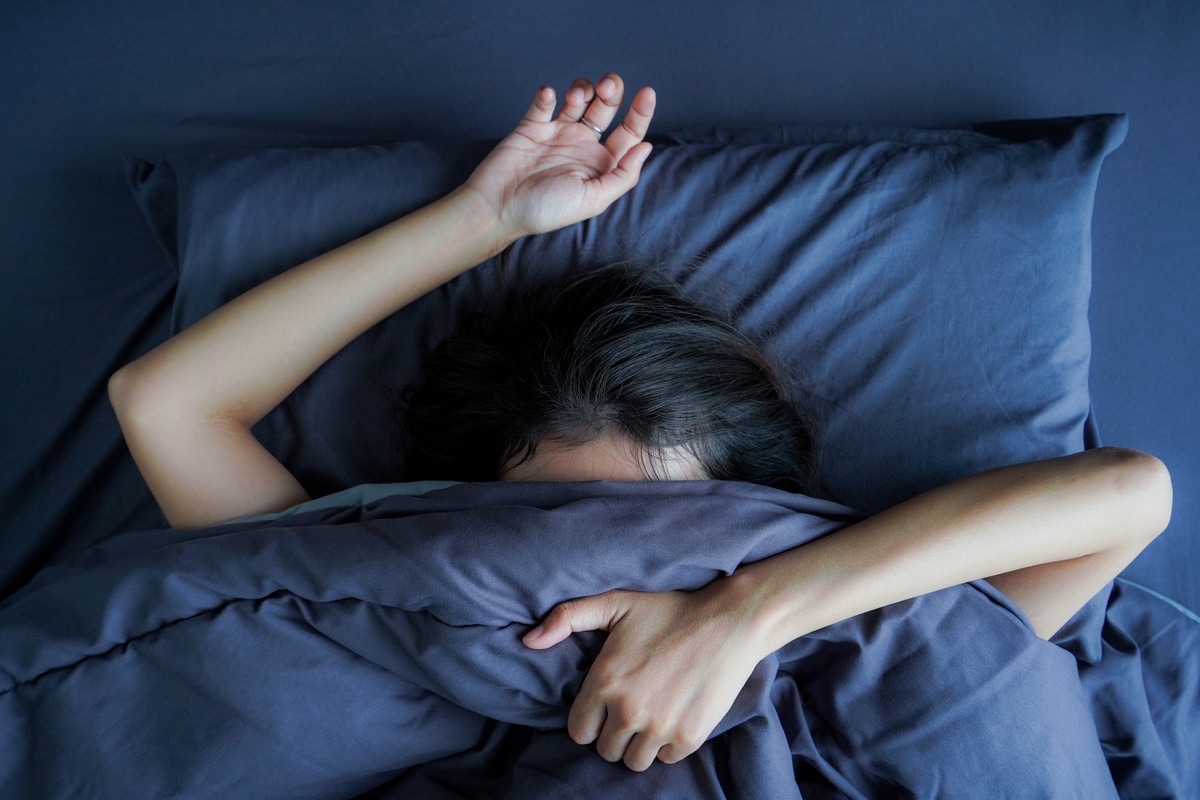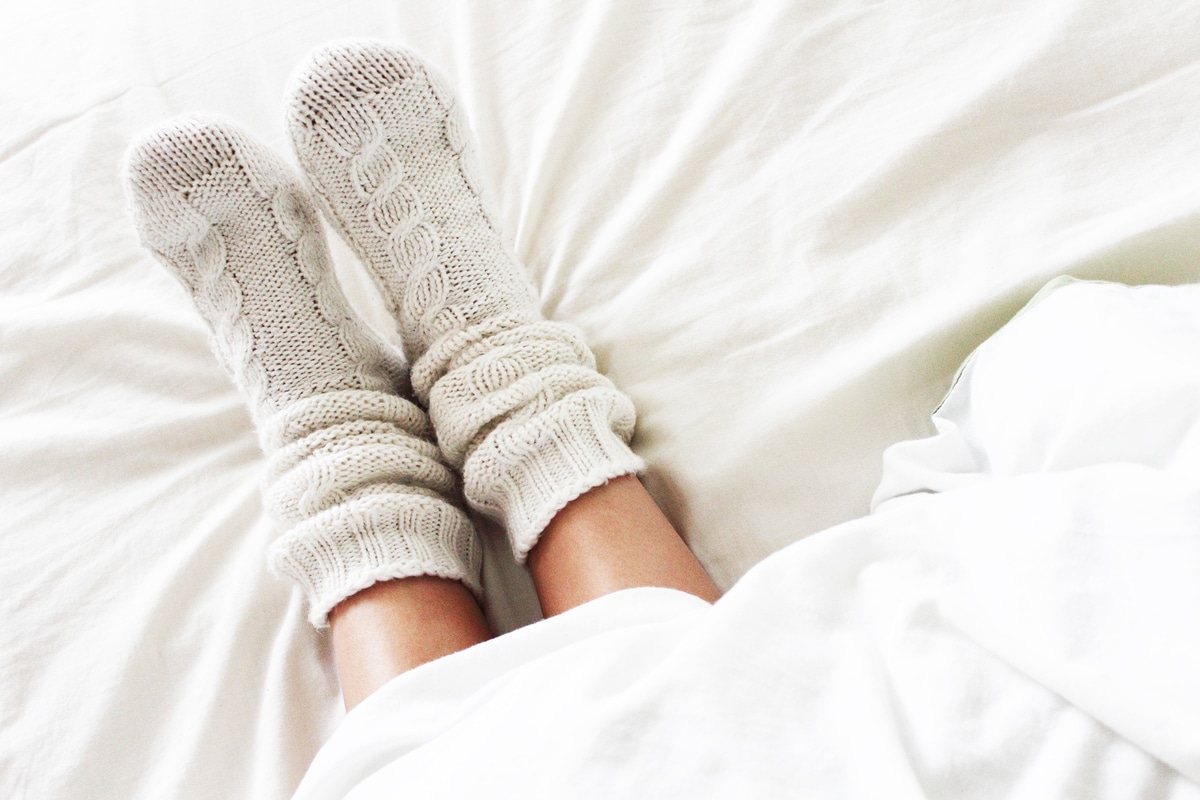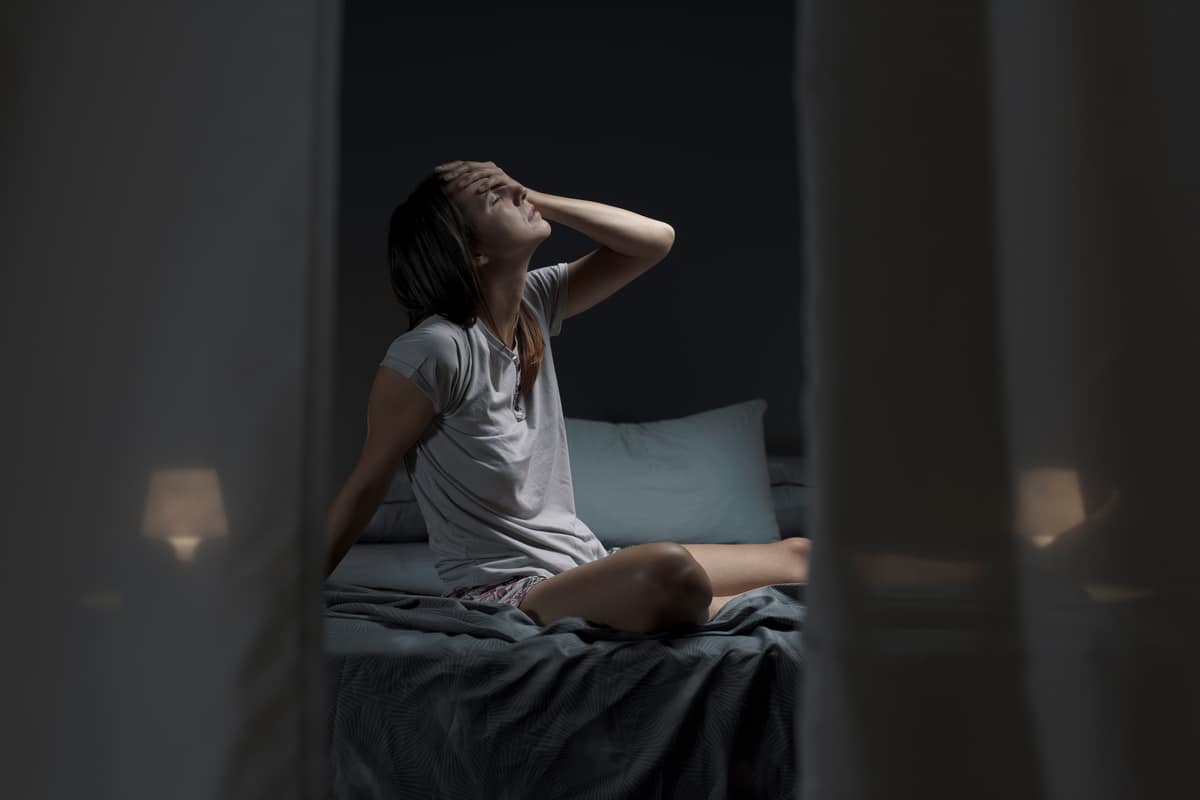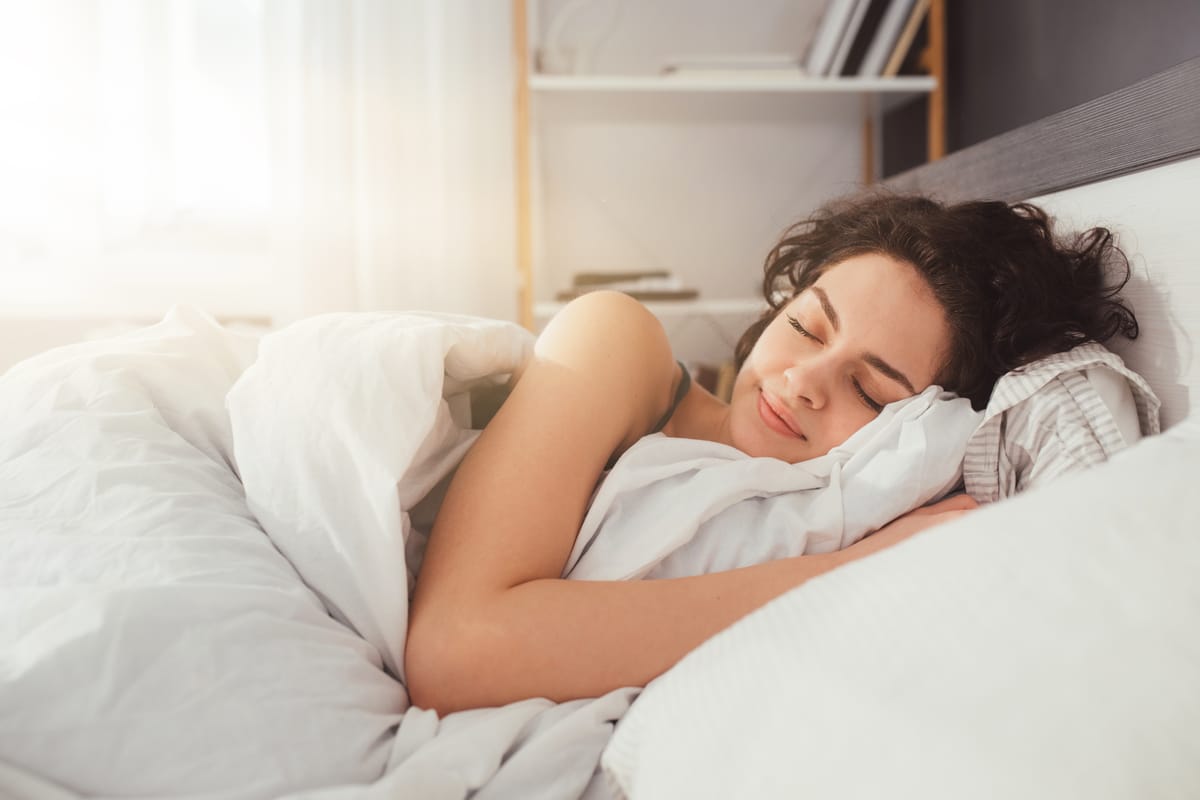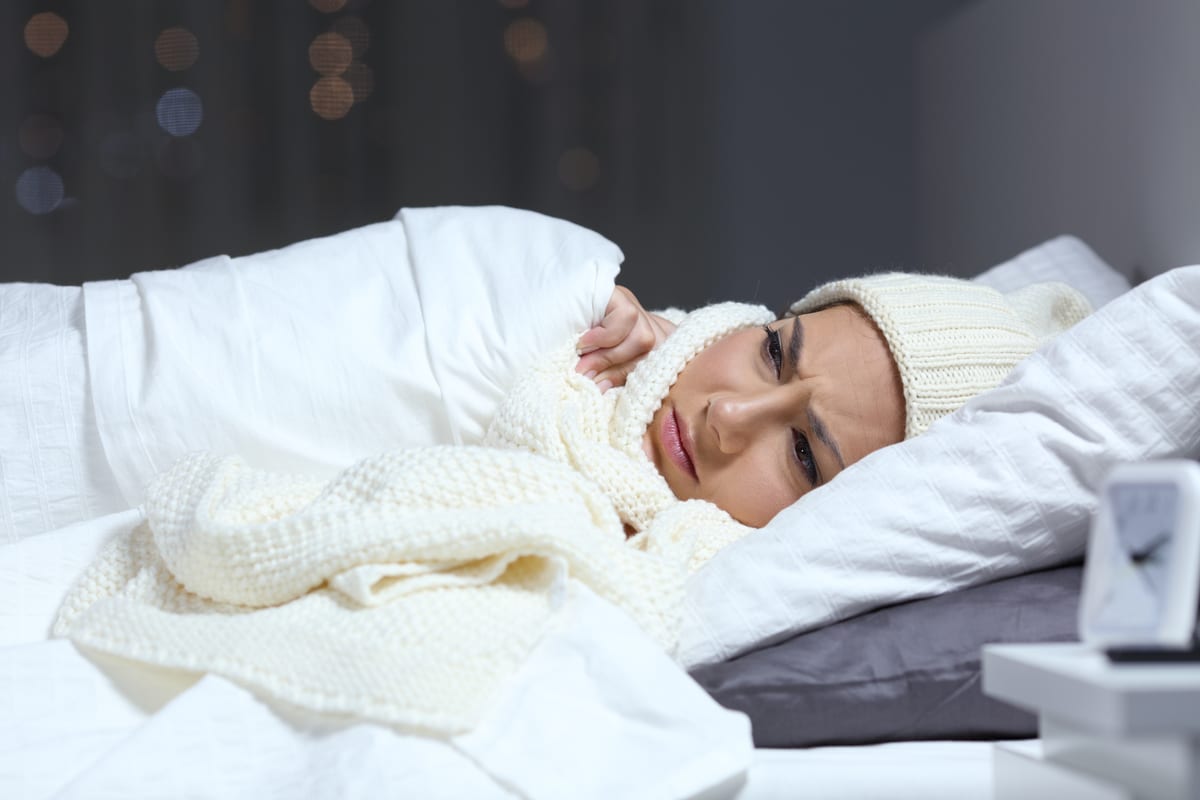Whether you’re trying to get through the rest of your workday or staying up late to finish a project, it’s likely you’ve indulged in a late afternoon coffee at some point.
That second cup of coffee always seems like a great idea until it’s finally time for your head to hit the pillow and you find yourself wide awake.
But don’t stress out: there are many ways to prepare your body for rest while dealing with a caffeine high. These strategies can range from physical activities to making easy adjustments to your sleep environment.
If you’re struggling to doze off due to caffeine, read on to learn these seven simple tips for falling asleep after drinking coffee.
How Does Coffee Affect Our Sleep?
Coffee can negatively affect your sleep due to the beverage’s high concentration of caffeine. Caffeine is a naturally occurring stimulant present in coffee beans. When you drink a cup of coffee, the caffeine can affect you for many hours.
The way caffeine impacts your energy makes it pretty clear how it will ruin your sleep: it blocks
Some people may only see a lack of sleep as a problem and are not aware of the negative effects oversleeping can have.
A few of these effects include fatigue, lack of energy, anxiousness, and mood changes. But an uptick in how long you are sleeping can mean that there may be some underlying causes or reasons.
Getting to the bottom of why you are sleeping so much can help you figure out how to stop oversleeping.
Here is an overview of the symptoms and causes of oversleeping and tips to prevent it.
What Is Oversleeping?
Oversleeping is more than just sleeping in a few extra hours. In fact, it is a medical disorder often referred to as “hypersomnia.”
Long physical activities, plane rides, and sickness can cause someone to need a few hours of extra sleep to recharge. But sleeping more than twelve hours most days is a sure sign that you may be oversleeping.
What Are the Symptoms of Oversleeping?
Sleep is essential for maintaining proper health and wellness. Without a healthy
Sleep is just as crucial to your body as air, food, and water. If you don't get enough of it, it can affect your mental health.
Unfortunately, many things can wake you from that much-needed slumber. Or worse, prevent you from getting back to sleep.
Chills are one of them. When muscles begin to quiver from the cold, even just a little, it can disrupt your sleep. Falling asleep with extra blankets on the bed is more likely to make you hot than keep you from getting cold.
So what can you do?
It may help to figure out why you’re getting cold, to begin with.
If frequent nighttime chills have you wondering, "Why do I get cold at night?" we have some answers.
Why Do I Get Cold at Night?
Sometimes you get cold at night just because the room temperature is cold. But you throw on an extra blanket and drop off back to sleep.
However, there is some science behind why you get cold at night even when your room
Our bedrooms are our sanctuaries and should feel like a safe, comfortable space to spend time in, but the colour of the walls and decor can often make or break a bedroom.
Several studies have shown the impact colours can have on our moods, motivation, and sleep quality; and choosing the right colour for your bedroom can help you unwind at night and conquer the day.
Read on to explore the best colours for a bedroom to ensure restful nights and seamless mornings.
The Power Of Colours
Colour psychology, the study of how colours determine human behaviour, plays an often unnoticed role in our daily lives.
Public spaces like hospitals and offices have used this psychology to decorate their space. Hospitals often use white to represent a clean space, while offices often use blue to increase focus and boost productivity.
Different colours can promote different physical and emotional reactions—when it comes to choosing a colour for your bedroom, you should keep in mind the impact it may have on your mood and ability to rest. Several studies have proven
Did you know that the average Brit only sleeps for just above six hours a night?
As a nation, there’s a struggle to get a full night’s rest. Such a struggle can lead to feelings of sluggishness and a constant, almost unstoppable yawning.
If you’ve been curious to figure out how to stop yawning, we’re here to help. Read on to find out all about it and what you can do to reduce how often you find yourself yawning throughout your day.
Why Do We Yawn?
First off, what causes yawning, and what exactly is it? Here’s some core information on the action and why you’re doing it in the first place.
What Is Yawning?
Yawning is a reflex wherein the mouth is opened wide and the lungs take in a deep breath to fill with air. Typically speaking, the eyes involuntarily close and may water, and it can leave the body feeling more relaxed than before. It also can stretch the eardrums and many other muscles.
That said, yawning is different for everyone. Most
Have you ever wished you could control what happens in your dreams? That you could manipulate the content and alter the narrative in any way that you saw fit?
You can by practising lucid dreaming. Lucid dreaming is a powerful and natural way to experience more vivid and more self-conscious dreams.
In this beginner’s guide, we’ll discuss what lucid dreaming is, the benefits and safety concerns associated with lucid dreaming, and step-by-step instructions to unlock this powerful state of dreaming.
What Is Lucid Dreaming?
The premise behind lucid dreaming is simple. When you are experiencing a lucid dream, you are conscious of the fact that you are dreaming. It is a hybrid state of both waking and dreaming. Achieving this awareness and level of consciousness allows you to interact with the contents of your dream and ultimately manipulate it entirely.
The Science Behind Lucid Dreaming
Contrary to popular belief, lucid dreaming occurs during the Rapid Eye Movement stage of sleep.
REM is the deepest stage of sleep, occurring approximately 60 to 90 minutes after falling
A good night’s rest depends on many different factors.
Some people struggle with nightmares or health issues, and diet and exercise can play a big role in the quality of your sleep.
But one of the most difficult times to get a good night’s sleep is when the mercury rises during the summer months.
The ideal temperature for sleeping is somewhere around 65 degrees Fahrenheit, or 18 degrees celsius, but a rogue heatwave can often make it difficult to maintain this sort of temperature.
Here are some things you can try to stay cool when sleeping the next time the temperature starts to climb.
How To Stay Cool When Sleeping
Essentially, it comes down to three areas to examine: your sleeping environment, clothing choices, and habits before bedtime.
Below, we’ll break these down to be sure you’re keeping yourself comfortable at night. With just a few tweaks here and there, you’ll be able to get deeper, more restful sleep while keeping your body and mind happy.
Your Sleeping Environment
The
How much of our time do we spend asleep? How long can a person stay awake? And how does the human sleep cycle differ from other mammals? Many questions like these have been asked about sleep, and there is plenty of research that has found the answers.
Some people spend the whole day looking forward to bedtime, while others view sleep as somewhat of a nuisance. But regardless of how you feel about it, sleep is something that everyone does, and it has a bigger impact on our lives than we might think.
Curious about what goes on when the lights are out? Check out these 28 interesting facts about sleep!
28 Interesting Facts About Sleep
1. Not Everyone Dreams in Colour
Around 12% of people dream in black and white. Up until the invention of the colour television, this percentage was a lot larger—roughly two-thirds of the population.
2. The Internet Can Disrupt Your Sleep
Are you struggling to fall asleep at night? If so, it may be time to cut down your
Sometimes there’s nothing cosier than curling up under a thick duvet in a cold room.
Conversely, there are few things harder to do than extract yourself from the duvet and brave frozen floors and chilly bedrooms first thing in the morning.
So, to help you avoid this unpleasant moment, we’ve put together some tips on how to keep your bedroom warm in winter.
How to Keep Your Bedroom Warm in Winter
Turning up the heat can be expensive. Luckily, turning up the thermostat isn’t the only solution to a cold bedroom. Here are some more affordable tips for how to keep your bedroom warm in winter.
Draw Your Curtains
Drawing curtains is one of those curious English phrases with a dual meaning. When it comes to how to keep a bedroom warm in winter, both are relevant.
One of the best ways to inexpensively add extra warmth to a wintery bedroom is by drawing the curtains in the morning to let the sun in. This can be especially helpful in old houses with single glazing.
Read MoreAt some point in their life, most people will find themselves tossing and turning in bed, trying desperately to get to sleep but finding it increasingly difficult to doze off.
While it’s a short-lived experience for many, for others it can become a chronic condition, as a study in 2015 found when they discovered that 33% of the researched patients were suffering from insomnia.
If you’re one of the people who find it difficult to drift off, here are some steps you can take that will help you fall asleep quickly.
How To Fall Asleep Quickly
Lying in bed, unable to fall asleep, can be incredibly frustrating. So here are 14 tips to help you fall asleep quickly.
Try Meditation
Meditation can be practised in different ways, but the main goal is to relax the mind and body to gain internal peace. Meditation dates back as early as 3000 BCE, bringing several benefits and proven results as it has evolved to modern times.
Using Meditation to fall asleep quickly has worked for thousands


